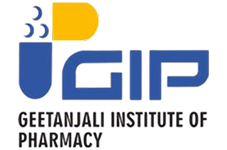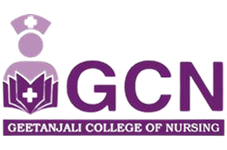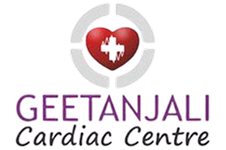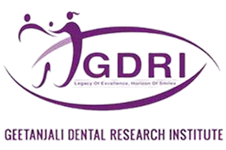
1 year extendable upto 2 years
1 (One) seat per year
MS/DNB degree in General Surgery
The goals of the fellowship are to provide comprehensive, multidisciplinary training to individuals who are committed to a career in surgical oncology.
The fellowship training will provide abroad exposure to the full range of clinical problems encountered in a tertiary head and neck oncology practice.
Upon completion of a one-year fellowship, the surgeon will possess the following characteristics:
After completing a fellowship in surgical oncology, you can pursue careers in hospitals, cancer centers, private practices, academic institutions, and research organizations. These roles often involve performing surgeries on patients with cancer, working with multidisciplinary teams, teaching, and conducting research
1 year extendable upto 2 years
1 (One) seat per year
MS/DNB degree in General Surgery
The educational goals of this program are to train fellows in a specialized cardiovascular disease area requiring technical, educational and research skills involved in Interventional cardiology. The knowledge base for interventional cardiology has become increasingly well-defined as a result of unparalleled programs in basic and clinical research in atherosclerosis, coronary disease, cardiomyopathy and valvular heart disease. Our educational goals for training in interventional cardiology are aligned with and guided by the recommendations of the ACC/SCAI/ AHA task force on optimal adult interventional cardiology training programs as follows:
After completing a fellowship in interventional cardiology, professionals can pursue careers in clinical practice, research, or a combination of both. Clinical practice focuses on performing procedures like cardiac catheterization and percutaneous coronary angioplasty, while research involves contributing to advancements in the field. Other opportunities include roles in government and private hospitals, research institutions
1 year extendable upto 2 years
1 (One) seat per year
MS/DNB degree in General Surgery
The Cardiac Anesthesia Fellowship is typically a one-year program designed to train anesthesiologists in all aspects of the cardiac surgical patient including pre-operative assessment /optimization, intra-operative management, and immediate post-operative care. Our goal is to train outstanding clinical anesthesiologists who are comfortable treating patients with a wide variety of complex cardiac problems including valvular heart diseases, critical coronary artery disease, cyanotic/acyanotic congenital heart disesease, major vascular & thoracic cases. Upon completion of the program, the Fellow will be familiar with the use of invasive monitoring and transesophageal echocardiography (TEE) for diagnosis and to guide intra-operative / post-operative therapy in these patients.
After completing a fellowship in Cardiac Anesthesia, career opportunities include clinical practice in hospitals and surgical centers, academic positions in research and teaching, and private practice or consulting roles.
1 year extendable upto 2 years
1 (One) seat per year
MS/DNB degree in General Surgery
The goals of the fellowship are to provide comprehensive, multidisciplinary training to individuals who are committed to a career in Plastic & Reconstructive Surgery and Burn Care.
The fellowship training will provide a broad exposure to the full range of clinical problems encountered in a tertiary Plastic & Reconstructive Surgery practice.
Upon completion of a one-year fellowship, the surgeon will possess the following characteristics:
After completing a fellowship in Plastic and Reconstructive Surgery, career opportunities include working as a Plastic Surgeon, Reconstructive Surgeon, Associate Plastic Surgeon, or Consultant Plastic Surgeon in hospitals, trauma centers, burn units, private practices, or high-end cosmetic clinics
1 year extendable upto 2 years
1 (One) seat per year
MS/DNB degree in General Surgery
Significant technological advances in Radiological Interventions and Vascular Imaging have taken place during the last decade, making it difficult to have thorough training in all modalities, as well as covering different subspecialties during the Post-Graduate Radiology course. All round training in Interventional and Vascular Imaging requires facilities that can be provided only in a tertiary care hospital. The Department of Radiology at GMCH is well placed with state-of- art equipment and experienced staff covering all modalities and specialties
After completing a fellowship in Neuro and Vascular Interventional Radiology, you can pursue careers as an Attending Consultant in Interventional Radiology, a Consultant Interventional Radiologist, or a Neurovascular Surgeon. You could also find opportunities in research, like becoming a Neurovascular Researcher or working in academic settings
1 year for Post MD чужй Residents and 6 months for Consultants
3 (Three) Seats per year
- MD/ DNB in Radiotherapy or Radiation Oncology.
- Valid registration with Medical Council of India or Equivalent state medical Council
Desirable:- Publications in the field of Radiation Oncology
- Evidence of participation in clinical research
- At least 1 year clinical experience following post-graduation in an academic or non- academic setting.
The program is primarily designed to train an individual in the recent advancements of Radiation Oncology who desires to gain further in-depth knowledge & high-level experience in stereotactic and functional surgery. This program integrates patient- centered clinical oncology with the opportunity to engage in cutting-edge technology & research.
A Fellowship in Image Guided Radio-surgery can lead to several career paths, primarily within the fields of radiation oncology and interventional radiology, as well as general surgery with a specialization in interventional techniques. Fellows may become clinical specialists, researchers, or faculty at medical institutions
1 year
2 (Two) seats per year
The goals of the fellowship are to provide comprehensive, multidisciplinary training to individuals who are committed to a career in head and neck oncology. The fellowship training will provide abroad exposure to the full range of clinical problems encountered in a tertiary head and neck oncology practice.
A Fellowship in Head and Neck Surgical Oncology offers career paths in surgical oncology, head and neck cancer treatment, reconstructive surgery, and academic research. Fellows may become clinical specialists, researchers, or faculty at medical institutions







